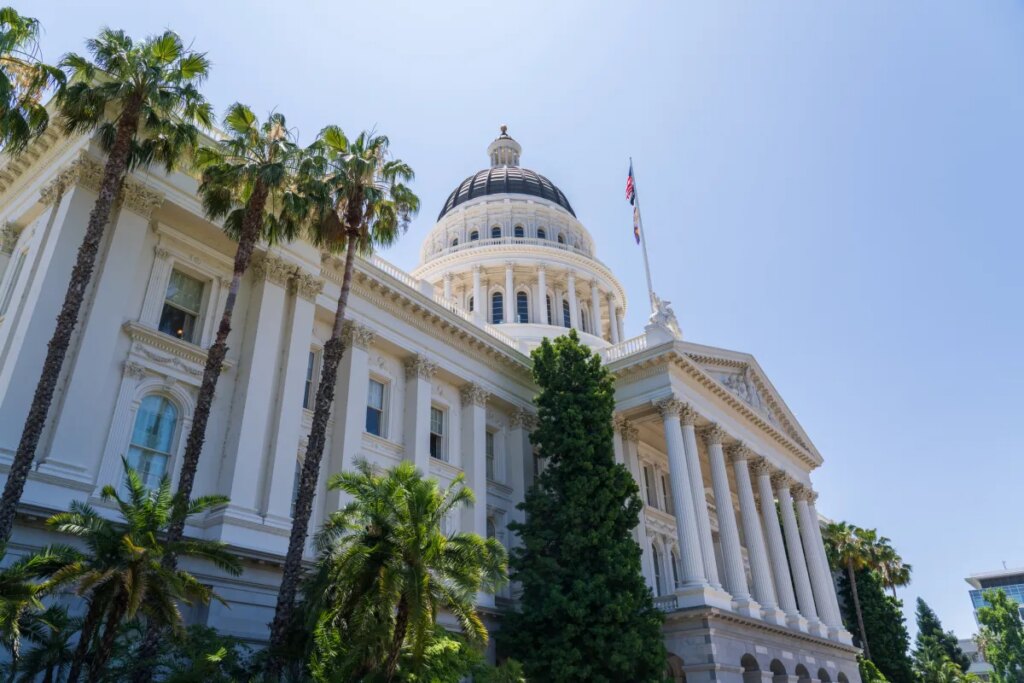California’s AI safety law demonstrates harmony between regulation and innovation.

Image Credits:Getty Images
California’s SB 53: A Game-Changer in AI Regulation
California Governor Gavin Newsom’s recent signing of SB 53, an innovative AI safety and transparency bill, marks a significant step in balancing state regulation with technological progress. According to Adam Billen, Vice President of Public Policy at youth-led advocacy group Encode AI, this legislation demonstrates that effective regulation can promote innovation rather than impede it.
Understanding SB 53
SB 53 is the first legislation of its kind in the United States. It mandates that large AI laboratories disclose their safety and security protocols, particularly concerning how they mitigate catastrophic risks like cyberattacks on critical infrastructure or the creation of bio-weapons. The Office of Emergency Services will ensure compliance with these protocols, emphasizing a proactive approach to safety.
Billen notes that many companies in the AI sector already perform safety testing on their models and publish model cards. However, some firms may be inclined to cut corners under competitive pressure, highlighting the necessity of legislation like SB 53. “Companies are already doing the stuff that we ask them to do in this bill,” he stated. “Are they starting to skimp in some areas at some companies? Yes. And that’s why bills like this are important.”
The Competitive Landscape
The concern about competitive pressure is not unfounded. Some AI companies have policies that allow for the relaxation of safety standards if competitors pursue riskier projects without adequate precautions. OpenAI, for example, has indicated that it might adjust its safety requirements in response to rival innovations. Billen argues that policy intervention can fortify existing safety commitments, helping to prevent companies from compromising their standards due to competitive urges.
The discourse around SB 53 contrasts sharply with reactions to its predecessor, SB 1047, which Newsom vetoed last year. Opposition to SB 53 has been less vocal, but many in Silicon Valley contend that any form of AI regulation hampers progress and ultimately disadvantages the U.S. in the race against China.
The Pushback from Tech Giants
In response to the perceived threat of regulation, tech giants like Meta and venture capital firms such as Andreessen Horowitz are investing heavily in political action committees to support pro-AI candidates. Earlier this year, these entities advocated for a moratorium on state regulation of AI, aiming for a decade-long freeze on such governance.
Encode AI, under Billen’s leadership, mobilized a coalition of over 200 organizations to defeat this proposal. However, he emphasizes that the battle is not over. Senator Ted Cruz, a prominent advocate of the moratorium, has introduced the SANDBOX Act. This legislation would enable AI companies to seek waivers that allow them to bypass certain federal regulations for up to ten years. Billen also anticipates future federal proposals claiming to offer a middle-ground solution, which could ultimately override state-level regulations.
The Dangers of Federal Preemption
Billen warns that narrowly defined federal AI legislation could undermine federalism, particularly concerning this transformative technology. “If you told me SB 53 was the bill that would replace all state bills related to AI risks, I would tell you that’s probably not a very good idea,” he explained. While he recognizes the importance of addressing the international AI race, he stresses that eliminating state measures—focused on issues like algorithmic discrimination and children’s safety—is not the right approach.
“Are bills like SB 53 the thing that will stop us from beating China? No,” Billen asserts. He believes it’s intellectually dishonest to imply that regulating AI will obstruct progress in the international arena. Instead, he argues that prioritizing export controls and ensuring the availability of critical resources, such as advanced chips, is more effective.
Legislative Efforts in Context
Legislative acts like the Chip Security Act aim to prevent American technological advancements from being diverted to China via export controls. Meanwhile, the CHIPS and Science Act is designed to bolster domestic chip production. However, companies like OpenAI and Nvidia have expressed skepticism about some of these measures, citing concerns about their efficacy and the impact on competitive standing.
Nvidia, in particular, has a vested interest in maintaining sales to China, which historically constitutes a substantial share of its revenue. There’s speculation that OpenAI’s hesitance to advocate for chip export controls stems from its need to maintain strong relationships with essential suppliers, such as Nvidia.
The political landscape has also seen inconsistencies, particularly during the Trump administration. Following a ban on advanced AI chip exports to China in April 2025, the administration reversed its decision just three months later, allowing some sales in exchange for a revenue share.
A Collaborative Approach to Democracy
Billen views SB 53 as a model of democratic collaboration between the tech industry and policymakers, navigating a challenging landscape to create legislation everyone can support. While acknowledging that the process can be “ugly and messy,” he believes it is the essence of democracy and the foundation of the country’s economic system.
“I think SB 53 is one of the best proof points that that can still work,” he concluded.
In summary, SB 53 illustrates a significant shift towards responsible AI governance in California. Rather than stifling innovation, the bill aims to create a framework ensuring that AI products are developed safely and responsibly. As discussions around federal AI regulation continue, the ongoing interactions between state and federal measures will play a pivotal role in shaping the future of technology in the U.S.
Thanks for reading. Please let us know your thoughts and ideas in the comment section down below.
Source link
#Californias #safety #law #shows #regulation #innovationdonthave #clash





